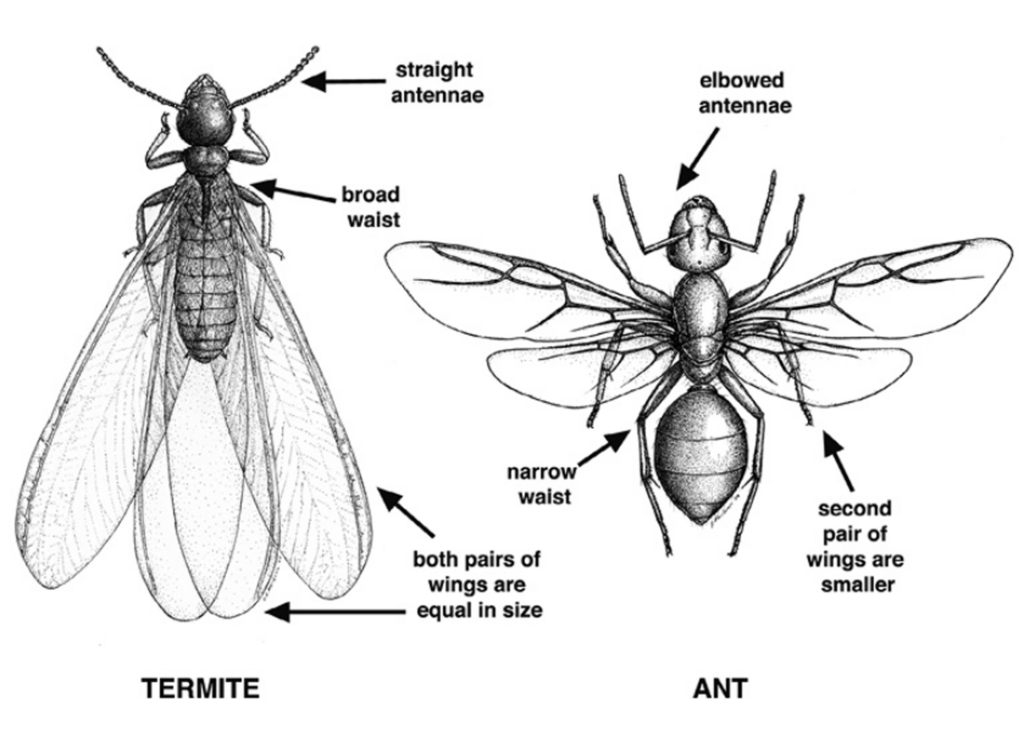Protect buildings from swarming termites
Published 11:31 am Wednesday, March 13, 2024
By Bonnie Coblentz
MSU Extension Service
House and building owners must be on high alert each spring as structures face dangerous attacks by swarms of both native and introduced termite species.
Native, subterranean termite species have started swarming in late February in South Mississippi to early March in more northern areas. The non-native, invasive and very damaging Formosan subterranean termite begins swarming in some parts of Mississippi in May.
Santos Portugal, Mississippi State University Extension Service urban entomologist, said the native subterranean termites in their natural environment are a good thing as they help to break down dead trees and release nutrients back into the soil.
“But termites in structures are a bad thing, especially since we tend to make our buildings out of their favorite type of food — dead trees,” Portugal said.
Swarming is when hundreds to thousands of termites in their reproductive, winged stage go on mating flights from established colonies.
“They will pair off, mate, detach their wings and look to establish a new colony,” Portugal said. “In Mississippi, the eastern subterranean termite and related species tend to swarm anywhere from mid-February to mid-May depending on where you are in the state.
“These termites are native, abundant and can be found in any county in Mississippi,” he said. “They swarm during daytime hours, as opposed to the invasive Formosan subterranean termite that swarms at night and emerges later in the season.”
Eastern subterranean termites are about 3/8 of an inch long including their two long, equal-sized pairs of light-colored wings. Their bodies are often black or dark brown.
“If you find swarmers outdoors near your house, you might consider reaching out to a qualified pest management company to have an inspection conducted on your home,” Portugal said. “If you find swarmers indoors, it is very likely that you have an infestation and should reach out to a qualified pest management company to request an inspection and bid for treatment.”
Professionals recommend that due to the high level of termite activity in Mississippi, all building owners should have a current termite contract on their structures. Seeing swarmers anywhere in the landscape is a reminder to ensure the contract is current, and the building has been treated.
Blake Layton, MSU Extension entomologist, said all buildings in the state should be preventatively treated for termites. Be sure not to disturb treatments once they have been applied or installed.
“Buildings that are not properly protected from termites will eventually be damaged by termites,” Layton said. “Termite control is not a do-it-yourself job. If you want the job done right, it is important to contract with a licensed pest control company to apply termite treatments.”
Layton said termites occur in all home landscapes and will readily invade buildings if given a chance.
“In the pest control industry, situations that give termites a greater chance to invade buildings are referred to as conducive conditions,” he said. “Mulch piled too high against exterior foundations, direct wood to soil contact, firewood or lumber stacked against the building and moisture problems due to structural or plumbing leaks are just a few examples of conducive conditions.”
Mississippians can report termite swarmers and find more information on these pests at https://extension.msstate.edu/






